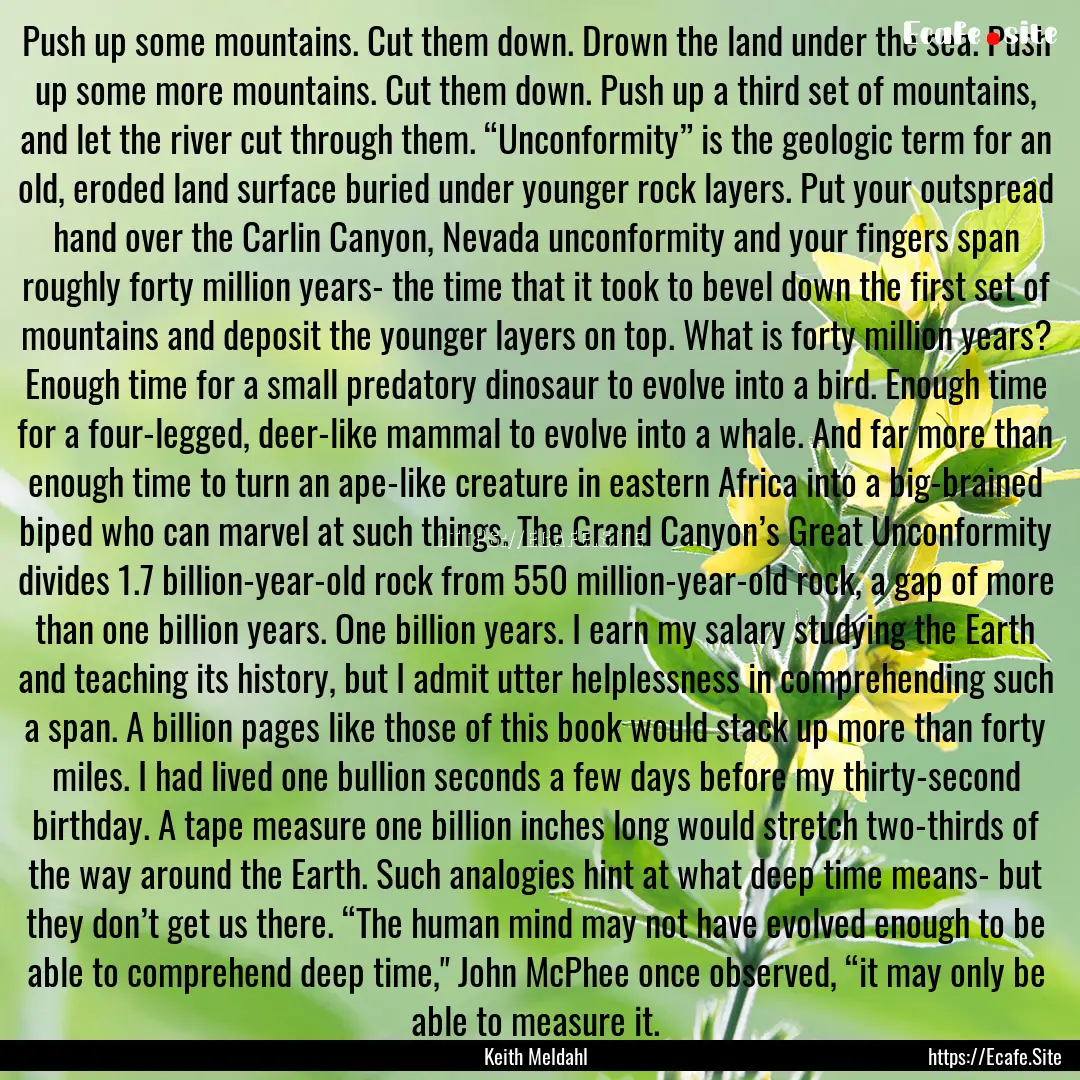
Report, if you have a problem with this page“ Push up some mountains. Cut them down. Drown the land under the sea. Push up some more mountains. Cut them down. Push up a third set of mountains, and let the river cut through them. “Unconformity” is the geologic term for an old, eroded land surface buried under younger rock layers. Put your outspread hand over the Carlin Canyon, Nevada unconformity and your fingers span roughly forty million years- the time that it took to bevel down the first set of mountains and deposit the younger layers on top. What is forty million years? Enough time for a small predatory dinosaur to evolve into a bird. Enough time for a four-legged, deer-like mammal to evolve into a whale. And far more than enough time to turn an ape-like creature in eastern Africa into a big-brained biped who can marvel at such things. The Grand Canyon’s Great Unconformity divides 1.7 billion-year-old rock from 550 million-year-old rock, a gap of more than one billion years. One billion years. I earn my salary studying the Earth and teaching its history, but I admit utter helplessness in comprehending such a span. A billion pages like those of this book would stack up more than forty miles. I had lived one bullion seconds a few days before my thirty-second birthday. A tape measure one billion inches long would stretch two-thirds of the way around the Earth. Such analogies hint at what deep time means- but they don’t get us there. “The human mind may not have evolved enough to be able to comprehend deep time," John McPhee once observed, “it may only be able to measure it. ”

Keith Meldahl
From : Rough-Hewn Land: A Geologic Journey from California to the Rocky Mountains



